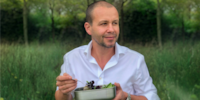
Background information
«Buy once, buy well»: how Black+Blum develops products for life
by Anna Sandner

Kindred Black produces care products in handmade glass vials. There’s zero plastic and no labels. The price tag is accordingly high. I spoke to the founders about the peculiarities and challenges of the slow beauty niche.
How much are you prepared to pay for tinted lip balm? 10, 15, or maybe even 20 francs? Kindred Black sells it for 85 US dollars. And it’s one of the brand’s cheaper beauty products. At first glance, that’s a bit steep, to say the least. However, take a closer look and it makes more sense.
Every glass jar from Kindred Black is handmade, sealed with wax and a cork. According to Kindred Black’s website, all ingredients are natural and often come from small, organic, family-run sources. Around 75 per cent of the product line is refillable. This concept makes the US slow beauty brand the only fully plastic-free one in the world. The founders Alice Kindred Wells (38) and Jennifer Black Francis (48) spoke to me about it. On their website, you can also find out about the history and origin of the individual glass bottles and active ingredients. The brand’s 74,000 Instagram followers seem to suggest that the concept resonates with people – at least visually. What about financially? Here are the answers.
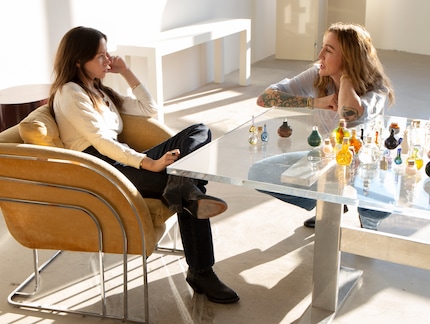
Your products are inspired by the philosophy of slow beauty. How would you describe your product range to someone who’s unfamiliar with the concept?
Jennifer Black Francis: Slow beauty is an environmentally focused line of handcrafted, small-batch skincare products, cosmetics and botanical fragrances. «Slow» stands for the opposite of pretty much everything that’s produced today – fast food, fast fashion, beauty hauls. These days, it’s all about change, sales numbers and buying something new for that dopamine hit. We want to take people back to a time when people had dressing tables and owned four or five beauty products they used over and over again and stayed loyal to. A time when routines were ritualised and took time.
Alice Kindred Wells: To achieve this, we consider every aspect of a product. We look for ingredients that are sourced locally or come from small, family-run farms. Our bottles are handmade by glassblowers who produce each bottle individually as if they were works of art. Our packaging’s made of paper and our bottles are plastic free and sealed with corks and wax. The slow movement should be more than lip service. We’d like to see meaningful change in the beauty industry.
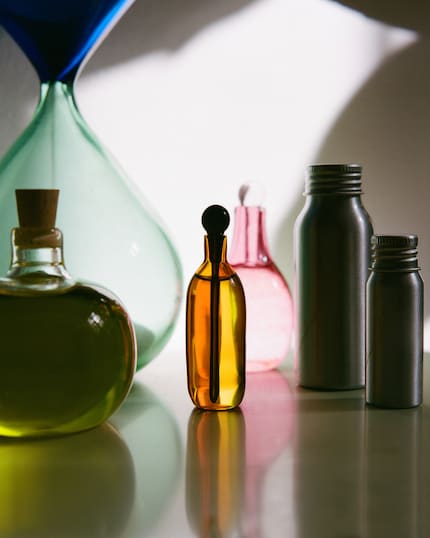
So-called fast-moving consumer goods (FMCGs) sold by the beauty industry can generate a lot of money. Can slow beauty still be profitable?
Jennifer: We’re giving it a try! Since day one, we’ve tried to keep our expenses as low as possible. We do without a fancy office or a flashy showroom. Our marketing budget’s tight, too. We rely on people telling their friends about us because they love what we do. We don’t strive to be the next billion-dollar beauty company. If we can stay in business, earn a decent salary and take care of our employees, then that’s good enough for us.
What challenges are associated with the production, packaging and formulation of slow beauty products? I’m assuming it’s quite challenging to make sustainable skincare products.
Alice: Scalability and uniformity are the biggest challenges for us. We need to be sensitive to the overuse of ingredients and can’t turn our glassblowers into mindless machines. Then there are small differences in bottle size or product colour in something made entirely by hand. We see this as a strength, but it requires educating our customers.
Slow beauty and aesthetics obviously have a price tag not everyone can afford.
Jennifer: That’s a big concern. Sustainability and ethical sourcing often come at a price that isn’t accessible to everyone. We wish we had a solution for it. However, what we can promise people who buy our products is that we pay our farmers, suppliers and craftspeople fair wages and have never haggled with them. They set a fair price for their work or product. Our hope is that at some point in the future, when larger companies ethically follow suit, there will be more sustainable options in every price range.
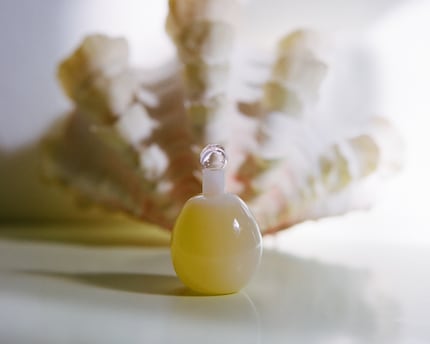
Your packaging is the prettiest thing I’ve ever seen in the cosmetics industry. Who does the designs?
Alice: Thank you! That means a lot. We’re both involved in the design of every product. We always start with an idea, but also give the glassblowers the freedom to work within the framework of their skills and style. We have a network of manufacturers in the US, Canada and a really cool glass studio in Oaxaca, Mexico that recycles glass from their local community. That’s what makes the bottles so special.
Jennifer: Each bottle is unique because it’s blown by hand. We often go for the colour jar for certain ingredients we love and use that over and over again. Rose oil often comes in a pink bottle, cucumber seed oil in a green one and ocotillo in a cobalt blue one.
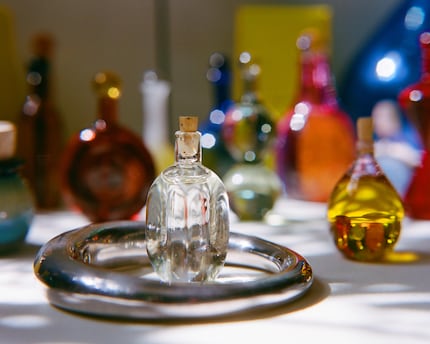
And the bottles aren’t labelled?
Alice: No, we deliberately leave them unbranded to preserve that feeling that they’re works of art. Something to be treasured, kept and used as part of an important ritual.
Has this caused any problems?
Alice: Different countries have different regulations regarding packaging and labelling. As our range is very small and customised, we can’t always adhere to these in every country. We don’t want to change the nature of our range just to comply with packaging regulations. This year, however, we want to see whether we can meet these requirements without jeopardising the integrity of our idea.
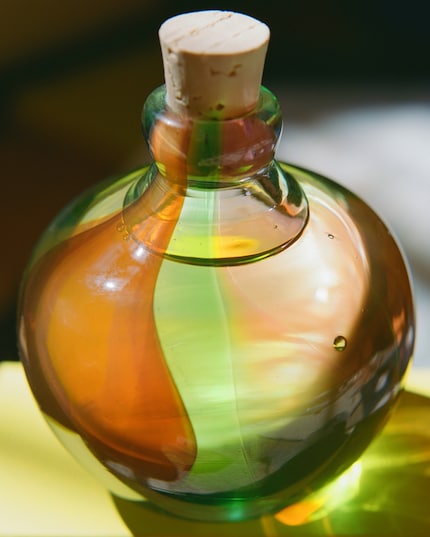
I read that more than twice of the production costs of your product go into packaging.
Jennifer: Yes, that can be quite painful. But we still believe it’s worth it. There are so many mass-produced bottles and products on the beauty market. We believe that the more special something is, the more likely you are to use it every day – until it’s used up. That’s our goal. We want people to think about what they consume. We want them to buy something that they’ll use and that will decorate their home. It sounds corny, but that’s what truly conscious consumption is. And we can only achieve this if we stick to our vision, no matter how much it costs.
You use cork and wax to seal your bottles. Why’s that?
Jennifer: We got the idea from the ancient Greeks and Romans, who used similar methods to seal and transport their wines and oils. It was a great way to keep the range plastic-free. The downside is that you can’t just pop the vials in your handbag. That’s where our travel-friendly aluminium refill bottles come in handy. They’re infinitely recyclable.
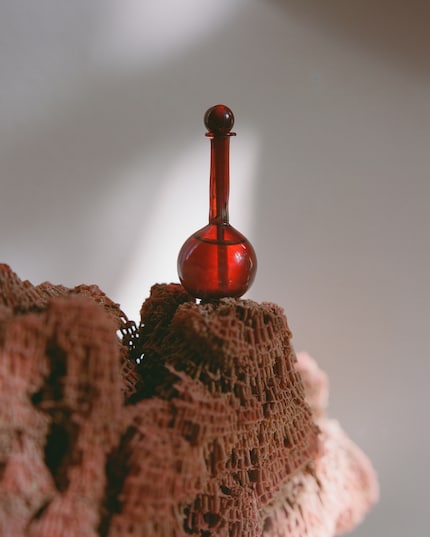
Does the packaging concept limit you in terms of formulation and shelf life?
Alice: Wax and cork don’t provide an airtight seal. That’s why our products can’t contain water. This is the biggest difference to conventional packaging.
Jennifer: Water-based cosmetic formulations tend to mould quickly when they’re exposed to air. This means we aren’t able to produce creams and toners at the moment. But we’re looking for solutions. We also do without chemical preservatives. Instead, we use natural preservatives such as jojoba oil and vitamin E, which help extend the shelf life of other, less stable ingredients. If you store the product correctly – i.e. in a cool, dry place away from direct sunlight – cork has no effect on the inside. We recommend using our products within one year as standard, but they often last much longer if stored correctly.
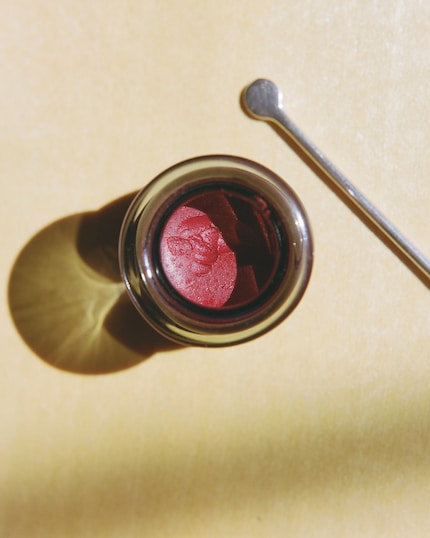
Where do you produce your products?
Alice: We have studios in New York and New Jersey, where 90 per cent of our products are developed and manufactured. We work with herbalists and farms across the country to produce some of our skincare products and fragrances, and then ship them to our facility for bottling.
What are you particularly proud of?
Jennifer: To staying true to our original mission for the last nine years, namely treating our planet better. And never wavering, even if it would’ve meant more money in our pockets.
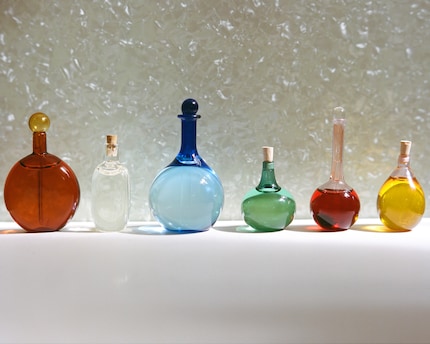
As a massive Disney fan, I see the world through rose-tinted glasses. I worship series from the 90s and consider mermaids a religion. When I’m not dancing in glitter rain, I’m either hanging out at pyjama parties or sitting at my make-up table. P.S. I love you, bacon, garlic and onions.
Interesting facts about products, behind-the-scenes looks at manufacturers and deep-dives on interesting people.
Show all
Background information
by Anna Sandner
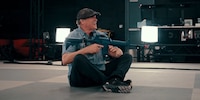
Background information
by Domagoj Belancic

Background information
by Domagoj Belancic